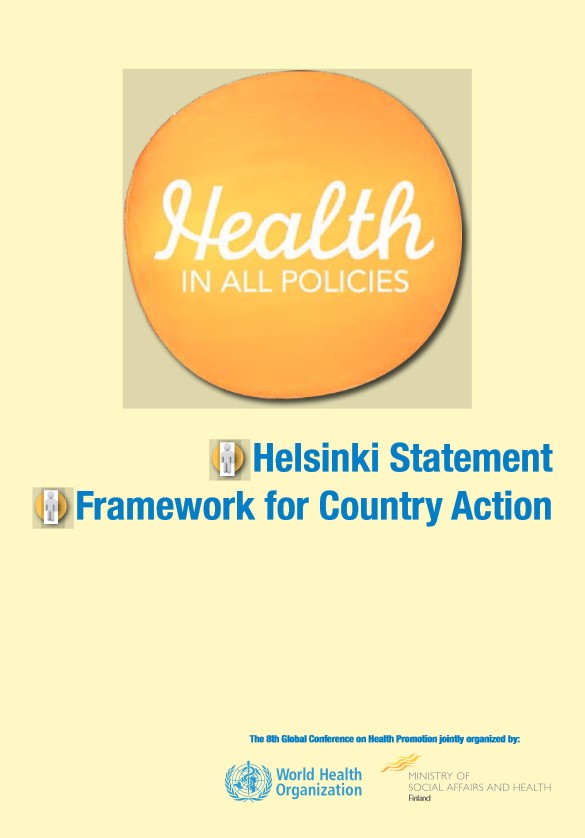World Health Organization (WHO)
Science in 5: COPD
Briefs & Fact Sheets
25 Nov 2024
27 Nov 2014

The participants to the 8th Global Conference on Health Promotion endorsed the Helsinki Statement on Health in All Policies In which they prioritize health and equity as a core responsibility of governments to its peoples, affirm the compelling and urgent need for effective policy coherence for health and well-being and recognize that this will require political will, courage and strategic foresight. The participants of the Conference call on governments to fulfill their obligations to their people’s health and wellbeing by taking a number of actions. They also call on WHO to support Member States put HiAP into practices, strengthen its own capacity in HiAP and work with the United Nations Family and other organizations to enable the implementation of HiAP.
This framework provides countries with a practical means of enhancing a coherent approach to Health in All Policies (HiAP), particularly at a national level. Some countries have already adopted a HiAP approach, even though this may not be explicit, whereas in other countries the concept is new and has yet to be operationalized. This framework has also been developed so that it can be adapted for supranational level decision-making and for governments structures at the national level, as well as the local level as decentralization of government functions has empowered local authorities in many areas.
HiAP is an approach on health-related rights and obligations. It improves accountability of policymakers for health impacts at all levels of policy-making. It includes an emphasis on the consequences of public policies on health systems, determinants of health, and well-being. It also contributes to sustainable development